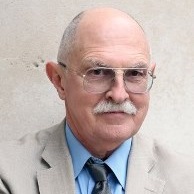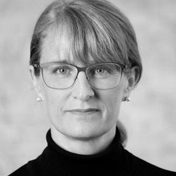Maurice Halbwachs Summer Institute
|

|
Archive 2015
2015 − Emotion – Interaction – Violence
28.09.-02.10.2015 − Lichtenberg-Kolleg
This year’s Maurice Halbwachs Summer Institute will focus on the interrelationship between violence and emotions. Is violence a form of interaction which escapes ordinary descriptions and thus can or even must be analyzed from the vantage point of a theory of emotions? Which methodological approaches are adequate in order to come to terms with the theme “emotion and violence” and how are violence and its emotional aspects to be represented and narrated? These questions are highlighted by sociologist Randall Collins (University of Pennsylvania) who will discuss these topics jointly with cultural anthropologist and historian Monique Scheer (Eberhard Karls University of Tübingen) and sociologist Wolfgang Knöbl (Hamburg Institute for Social Research).
Team
Seniors:
 Randall Collins is professor at the University of Pennsylvania and one of the best known and most influential US-American sociologists. In the last four decades Collins has published a large number of of works relating to conflict- and educational sociology, macrosociology and capitalism analysis, theory on ritual and emotion as well as on the phenomenon of violence. Three of his books in particular are relevant for the summer Institute: The Sociology of Philosophies: A Global Theory of Intellectual Change (1998), in which the link which Collins identifies between intellectual creativity and emotions serves as the basis for a comprehensive global history philosophical thought, Interaction Ritual Chains (2004) as a theory of ritual in of everyday life with a focus on emotions and their relevance for group solidarity, and Violence: A Micro-sociological Theory (2008), which focuses on the appearance of violent interactions from an ethnological point of view. Collins is also known for his work as an author of crime thrillers.
Randall Collins is professor at the University of Pennsylvania and one of the best known and most influential US-American sociologists. In the last four decades Collins has published a large number of of works relating to conflict- and educational sociology, macrosociology and capitalism analysis, theory on ritual and emotion as well as on the phenomenon of violence. Three of his books in particular are relevant for the summer Institute: The Sociology of Philosophies: A Global Theory of Intellectual Change (1998), in which the link which Collins identifies between intellectual creativity and emotions serves as the basis for a comprehensive global history philosophical thought, Interaction Ritual Chains (2004) as a theory of ritual in of everyday life with a focus on emotions and their relevance for group solidarity, and Violence: A Micro-sociological Theory (2008), which focuses on the appearance of violent interactions from an ethnological point of view. Collins is also known for his work as an author of crime thrillers.
Website
 Monique Scheer has worked for many years in the Collaborative Research Center (SFB 437) on War Experience at the University of Tübingen and as a research fellow at the Center for the History of Emotions at the Max-Planck-Institute for Human Development in Berlin. Since 2014 Scheer has been a Professor in the Department of Historical and Cultural Anthropology at the University of Tübingen. Her books Rosenkranz und Kriegsvisionen. Marienerscheinungskulte im 20. Jahrhundert (2006) and Emotional Lexicons. Continuity and Change in the Vocabulary of Feeling 1700-2000 (2011 published in German) established Scheer as one of the most innovative scientists in the sphere of anthropological research and history of emotions. She is currently leading the sub-project Stuttgart 21: Public Outcries as an Emotional Practice of Threat Discourse in the collaborative research area 923 Threatened Order – Societies under Stress.
Monique Scheer has worked for many years in the Collaborative Research Center (SFB 437) on War Experience at the University of Tübingen and as a research fellow at the Center for the History of Emotions at the Max-Planck-Institute for Human Development in Berlin. Since 2014 Scheer has been a Professor in the Department of Historical and Cultural Anthropology at the University of Tübingen. Her books Rosenkranz und Kriegsvisionen. Marienerscheinungskulte im 20. Jahrhundert (2006) and Emotional Lexicons. Continuity and Change in the Vocabulary of Feeling 1700-2000 (2011 published in German) established Scheer as one of the most innovative scientists in the sphere of anthropological research and history of emotions. She is currently leading the sub-project Stuttgart 21: Public Outcries as an Emotional Practice of Threat Discourse in the collaborative research area 923 Threatened Order – Societies under Stress.
Website
 Wolfgang Knöbl is director of the Hamburg Institute for Social Research (HIS). His research is focused on Social Theory, as well as on Political and historical Sociology and, further, on Comparative macro-sociology and the history of social sciences. He is currently working on a study entitled ‘Die Geburt des Staates aus dem Geist der Metropole: Eine ideengeschichtliche und planungssoziologische Studie zur Staatsbildung in Argentinien, Australien und Kanada’.
Wolfgang Knöbl is director of the Hamburg Institute for Social Research (HIS). His research is focused on Social Theory, as well as on Political and historical Sociology and, further, on Comparative macro-sociology and the history of social sciences. He is currently working on a study entitled ‘Die Geburt des Staates aus dem Geist der Metropole: Eine ideengeschichtliche und planungssoziologische Studie zur Staatsbildung in Argentinien, Australien und Kanada’.
Website
Initiators:
Since 2001 Regina Bendix has been professor for cultural anthropology and European ethnology at the Georg-August-University of Göttingen. She undertakes research in and teaches on history of the discipline, intellectual history, with a particular focus on the interaction between culture, economics and politics (tourism and cultural heritage), cultural influences on sensory perception (such as research on nutrition) and the study of narration and communication. She leads both the DFG Research Group focous on ‘the Constitution of Cultural Property’, and a part-time project within this group; namely, ‘Aesthetic and Practice of popular serialitiy'. She is a Co-editor of the Journal Ethnologia Europaea and has also co-edited the journal Narrative Culture since 2014.
Website
Since 2004 Hartmut Bleumer has been professor of German Philology and German Medieval Studies at the Georg-August-University of Göttingen. His central focus is on research in historical narratology and historical aesthetics. He is a co-editor for the Zeitschrift für Literaturwissenschaft und Linguistik (Journal of Literature, Science and Linguistics; LiLi). Currently his interest lies in the relationship between Minnelyrik and novels on Minne and, further to this, the mediality of voice in the context of writing as observed from a cultural and literary-scientific perspective. In addition he is interested in the role of cadence and sound in the past imagination of space.
Website
Since 2000 Rebekka Habermas has been professor for Modern History at the Georg-August-University of Göttingen. She primarily conducts research into the history of bourgeoisie, law and gender. Recently, her research has focused on colonial history, the history of knowledge and the history of missionary work in the 19th Century. She is a co-editor for the journal Historische Anthropologie (Historical Anthropology) and has contributed to the publication of several books. She has also acted as spokeswoman for the research and training group “Dynamiken von Raum und Geschlecht” (Dynamics of Space and Gender) with the remits of research conducted by the German Research Foundation (DFG). Among her recent interdisciplinary publications are: the “Mission Global. Eine Verflechtungsgeschichte seit dem 19. Jahrhundert” (A Global Mission. A History of Interdependence from the 19th Century; published in 2014, in cooperation with Richard Hölzl), and the article entitled „Lost in Translation. Transfer and Nontransfer in the Atakpame Colonial Scandal” published in 2014 in the Journal of Modern History.
Website
Wolfgang Knöbl
Website
Participants:
Insa Agena (Westfälische Wilhelms-University of Münster): (Georg-August-Universität Göttingen): ‚Die Konzeption des Selbst im Hiobbuch und in den Hodajot’.
Yun-Chu Cho (Humboldt-University of Berlin): ‚Die Thematisierung des Schweigens in der Post-DDR-Literatur'.
Anna Danilina (Max Planck Institute for Human Development Berlin): ‚Ethics of Essence. Contested Moralities of Religion and Race’.
Dr. Stefan Deißler (London): ‚Eigendynamische Bürgerkriege. Von der Persistenz und Endlichkeit innerstaatlicher Gewaltkonflikte’.
Max Graff (University Heidelberg): ‚Menschenwürde als ästhetisches Problem’.
Çiçek Ilengiz (Max Planck Institute for Human Development Berlin): ‚When History Goes Mad. Writing the History of State Sponsored Violence in Dersim’.
Mirjam Janett (University of Basel): ‚Fremdplatzierungspraxis im Vergleich. Fremdplatzierungen in der deutschsprachigen Schweiz der Nachkriegszeit (1945-1980)’.
Peter Kankonde-Bukasa (University of the Witwatersrand, Johannesburg): ‘The Politics of Violent Transnational Mobilisation in (DR) Congolese Diaspora’.
Jas Kaur (University of London): ‚An anthropology of ethnic conflict and coups in Fiji’.
Dr. Jasmina Korczak-Siedlecka (University of Leipzig): ‚Perception, Construction and Interpretation of Violence in Everyday Life in Villages of Pomerelia in 16th and 17th century’.
Nadja Maurer (University of Hamburg): ‚Skripte von Sicherheit im Wandel. Das Beispiel der Post-Konfliktgesellschaft Nordirland’.
Sara Mehlmer (Johannes Gutenberg-University of Mainz): ‚Gewalt und Gewaltvermeidung zwischen Katholiken, Juden und Muslimen in Spanisch-Nordafrika, 1859-1874’.
Tino Minas (Westfälische Wilhelms-University Münster): ‚Die Übersetzung der Gewalt. Fallanalysen »körperlicher Gewalt« im Kontext multipler Differenzierung’.
Sayani Mitra (Georg-August-University of Göttingen): ‚The Process of Making of a New Life and its ‘End’- Socio-ethical and Material Implications of the Practice of Surrogacy in India’.
Simona Pagano (Georg-August-University of Göttingen): ‚Reassembling Campland.
Eine regime- und assemblagetheoretische Ethnographie zu Roma-Camps in Rom' (Arbeitstitel)
Madeleine Rungius (University of Potsdam)
Bhakti Shah (Georg-August-University of Göttingen): ‚The Resources and restraints of women’s education in reckoning with the violence on women in India’.
Dr. Andrea Speltz (Georg-August-University of Göttingen): ‚War in the Age of Sentimentalism. Violence and Virtue in Eighteenth-Century European Literature’.
Andrea Stänicke (University of Siegen): ‚Sadomasochistische Maskerade. Ein aktuelles Phänomen und seine kulturellen Relevanzen’.
Dr. Stefan Wellgraf (Europa-University Viadrina, Frankfurt/Oder): ‚Gefühlslagen der Exklusion’ (DFG-Projekt).
Assistants:
Annekathrin Krieger
Valentina Prljic
Summer School 2015 Program Overview
28.09.-02.10.2015 − Lichtenberg-Kolleg − Historische Sternwarte
Monday, September 28th, 2015
Arrival Location: Weinstube /Faculty Club at Planea Basic, Geismar Landstraße 11, 37083 Göttingen
19.00 19.00 Reception
20.00 Opening Dinner at Planea Basic
Tuesday, September 29th, 2015
09.00-09.30 Opening remarks Wolfgang Knöbl (Hamburg Institute for Social Research)
09.30-10.30 Participants present their posters, part I
Coffee break
11.00-12.00 Participants present their posters, part II
Lunch
14.00-15.00 Working Groups A-D: meeting and preparation of central questions
15.00-16.30 Keynote Randall Collins (University of Pennsylvania): „Emotion - Interaction - Violence“
Coffee break
17.00-18.30 Working Groups A and B: Feedback and questions with Randall Collins
Working Groups C and D: Debate on texts from Randall Collins and Monique Scheer and discussion about Ph.D. projects
Wednesday, September 30th, 2015
09.00-17.00 Excursion to Mühlhausen
Thursday, October 1st, 2015
09.00-10.30 Working Groups C and D: Feedback and questions with Randall Collins
Working Groups A and B: Debate on texts from Randall Collins and Monique Scheer and discussion about Ph.D. projects
Coffee break
11.00-12.30 Keynote Monique Scheer (University of Tübingen): "Emotional Force: Reflections on the Complex Relationship of Violence and Agency“
Lunch
14.30-16.00 Working Groups C and D: Feedback and questions with Monique Scheer
Working Groups A and D: Discussion about Ph.D. projects
Coffee break
16.30-18.00 Possibility for one-on-one conversations with Randall Collins, Monique Scheer and Wolfgang Knöbl
Friday, October 2nd, 2015
09.00-10.30 Working Groups A and B: Feedback and questions with Monique Scheer
Working Groups C and D: Discussion of Ph.D. projects
Coffee break
11.00-12.30 Keynote Wolfgang Knöbl (Hamburg Institute for Social Research): “Theoretical Discourses on Violence and the Problem of the Micro-Macro-Link”
Lunch
13.30-16.00 Working Groups A-D: Feedback and questions with Wolfgang Knöbl and Preparation for panel discussion
Coffee break
16.30-18.00 Panel discussion; introduction and moderation: Rebekka Habermas (University of Göttingen) and Regina Bendix
18.30 Farewell dinner; Location: Restaurant Gaudi, Rote Straße 14, 37073 Göttingen
Contact
Maurice Halbwachs Summer Institute
Annekathrin Krieger
Kulturwissenschaftliches Zentrum der Universität Göttingen
Raum 2.609
Heinrich-Düker-Weg 14
37073 Göttingen
Tel. 0049 (0) 551/ 39 - 21235
E-Mail: mhsi@gwdg.de
 Randall Collins is professor at the University of Pennsylvania and one of the best known and most influential US-American sociologists. In the last four decades Collins has published a large number of of works relating to conflict- and educational sociology, macrosociology and capitalism analysis, theory on ritual and emotion as well as on the phenomenon of violence. Three of his books in particular are relevant for the summer Institute: The Sociology of Philosophies: A Global Theory of Intellectual Change (1998), in which the link which Collins identifies between intellectual creativity and emotions serves as the basis for a comprehensive global history philosophical thought, Interaction Ritual Chains (2004) as a theory of ritual in of everyday life with a focus on emotions and their relevance for group solidarity, and Violence: A Micro-sociological Theory (2008), which focuses on the appearance of violent interactions from an ethnological point of view. Collins is also known for his work as an author of crime thrillers.
Randall Collins is professor at the University of Pennsylvania and one of the best known and most influential US-American sociologists. In the last four decades Collins has published a large number of of works relating to conflict- and educational sociology, macrosociology and capitalism analysis, theory on ritual and emotion as well as on the phenomenon of violence. Three of his books in particular are relevant for the summer Institute: The Sociology of Philosophies: A Global Theory of Intellectual Change (1998), in which the link which Collins identifies between intellectual creativity and emotions serves as the basis for a comprehensive global history philosophical thought, Interaction Ritual Chains (2004) as a theory of ritual in of everyday life with a focus on emotions and their relevance for group solidarity, and Violence: A Micro-sociological Theory (2008), which focuses on the appearance of violent interactions from an ethnological point of view. Collins is also known for his work as an author of crime thrillers.  Monique Scheer has worked for many years in the Collaborative Research Center (SFB 437) on War Experience at the University of Tübingen and as a research fellow at the Center for the History of Emotions at the Max-Planck-Institute for Human Development in Berlin. Since 2014 Scheer has been a Professor in the Department of Historical and Cultural Anthropology at the University of Tübingen. Her books Rosenkranz und Kriegsvisionen. Marienerscheinungskulte im 20. Jahrhundert (2006) and Emotional Lexicons. Continuity and Change in the Vocabulary of Feeling 1700-2000 (2011 published in German) established Scheer as one of the most innovative scientists in the sphere of anthropological research and history of emotions. She is currently leading the sub-project Stuttgart 21: Public Outcries as an Emotional Practice of Threat Discourse in the collaborative research area 923 Threatened Order – Societies under Stress.
Monique Scheer has worked for many years in the Collaborative Research Center (SFB 437) on War Experience at the University of Tübingen and as a research fellow at the Center for the History of Emotions at the Max-Planck-Institute for Human Development in Berlin. Since 2014 Scheer has been a Professor in the Department of Historical and Cultural Anthropology at the University of Tübingen. Her books Rosenkranz und Kriegsvisionen. Marienerscheinungskulte im 20. Jahrhundert (2006) and Emotional Lexicons. Continuity and Change in the Vocabulary of Feeling 1700-2000 (2011 published in German) established Scheer as one of the most innovative scientists in the sphere of anthropological research and history of emotions. She is currently leading the sub-project Stuttgart 21: Public Outcries as an Emotional Practice of Threat Discourse in the collaborative research area 923 Threatened Order – Societies under Stress. Wolfgang Knöbl is director of the Hamburg Institute for Social Research (HIS). His research is focused on Social Theory, as well as on Political and historical Sociology and, further, on Comparative macro-sociology and the history of social sciences. He is currently working on a study entitled ‘Die Geburt des Staates aus dem Geist der Metropole: Eine ideengeschichtliche und planungssoziologische Studie zur Staatsbildung in Argentinien, Australien und Kanada’.
Wolfgang Knöbl is director of the Hamburg Institute for Social Research (HIS). His research is focused on Social Theory, as well as on Political and historical Sociology and, further, on Comparative macro-sociology and the history of social sciences. He is currently working on a study entitled ‘Die Geburt des Staates aus dem Geist der Metropole: Eine ideengeschichtliche und planungssoziologische Studie zur Staatsbildung in Argentinien, Australien und Kanada’.Contact
|
Maurice Halbwachs Summer Institute Annekathrin Krieger Kulturwissenschaftliches Zentrum der Universität Göttingen Raum 2.609 Heinrich-Düker-Weg 14 37073 Göttingen |
Tel. 0049 (0) 551/ 39 - 21235 E-Mail: mhsi@gwdg.de |